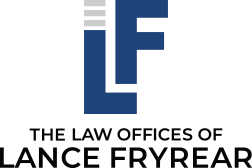
Sex Crimes FAQ
Answers from a Lynnwood Sex Crime Lawyer
What is a sex crime?
Sex crimes involve sexual acts or offenses that are sexual in nature. Sex crime offenders often force sexual activity on a person who is unwilling or unable to give consent. Other types of sex crimes, such as prostitution and indecent exposure, involve the exchange of sex for money or exposing one’s genitals in public. The common denominator for all sex crimes is that the crime involves sexual acts or is sexual in nature.
What types of behaviors constitute child sexual abuse?
Child sexual abuse includes a wide range of sexual behaviors that occur between an adult and a child. These sexual behaviors are intended to erotically arouse the adult, without consideration for the child. Behaviors that are sexually abusive often involve bodily contact (kissing, touching, fondling, oral, anal or vaginal intercourse) but other behavior can be considered sexual abuse even if physical contact isn’t made (genital exposure, verbal sexual pressure, sexual exploitation).
What is sex offender registration?
Individuals convicted of sex crimes in Washington are often required to register as sex offenders as part of their sentence. After being released from prison, a person must register with local law enforcement and revisit them at regular, specified intervals.
Sex offender registration is a way for law enforcement to keep track of sex offenders and is thought to reduce the number of repeat sexual offenders by monitoring their whereabouts.
What happens if I don't register as a sex offender?
If an individual is required to register as sex offender, but fails to do so, they can be charged with failure to register. Failure to register is a serious offense because it shows prosecutors, judges, and jurors that the defendant disregarded court orders. In their eyes, if a defendant disregards court orders, what other laws will they ignore? This is the main reason sex offenders charged with failure to register are punished harshly, because judges wish to prevent them committing further sex crimes.
Washington law classifies Sex Offenders on three levels:
- Level I: Low risk to re-offend within the community at large. Information shall be shared with other law enforcement agencies upon request, the Sheriff may disclose relevant, necessary and accurate information to any victim or witness to the offense and to any individual community member who lives near the residence of the sex offender. Level I sex offenders may not be the subject of general public notification.
- Level II: Moderate risk to re-offend within the community at large. Relevant, necessary and accurate information concerning risk Level II offenders may be disclosed to public and private schools, child day care centers, family day care providers, businesses and organizations that serve primarily children, women or vulnerable adults and neighbors and community groups near the residence where the offender resides, expects to reside, or is regularly found. Level II offenders may or may not be the subject of general public notification, depending upon the specific circumstances present.
- Level III: High risk to re-offend within the community at large. Relevant, accurate and necessary information concerning offenders classified as risk Level III may be disclosed to the public at large.
The lawyers at our Lynnwood firm provide clients with representation if they have been charged with failure to register.
What Are Child Pornography Crimes?
Under federal law, child pornography is a visual depiction (drawing, cartoon, sculpture, painting, photograph, film, video, or computer generated image or picture) of sexually explicit conduct depicting a minor engaging in explicit conduct or depicting an image of a minor engaging in any type of sexual act.
Both federal and state laws make child pornography illegal and a person will be tried at either state court or federal court depending upon the exact circumstances of the child pornography offense. Sometimes both federal and state laws are broken during the commission of child pornography, and in these cases a defendant may face penalties at both federal and state levels.
Receiving child pornography charges can be a shocking and difficult experience for anyone, but it is important to quickly hire a Lynnwood child pornography lawyer who will be there for you from the beginning to the end of your case.
What is sexual assault?
Sexual assault is any genital, oral, or anal penetration by a part of the perpetrator’s body or by an object, using force or without the victim's consent. If you have been accused of sexual assault, you should speak with a Lynnwood sex crimes defense lawyer who can provide you with more information about these types of charges.
What is statutory rape?
Statutory rape is sexual intercourse by an adult with a person below the age of consent. A defendant may be convicted of statutory rape even if the underage person consented to the sexual contact and no force was used during the act.
If you have more questions about sex crime charges, contact a Lynnwood Sex Crimes Defense Attorney today!
Client Testimonials
-
“Thank you for your help during my legal crisis. Your particular brand of counsel was a comfort and a blessing to me. Keep being real.”
- A.M. -
“Just want to say thanks! You have been so kind and obliging to answer my questions, some probably stupid but nonetheless you were there for me (above and beyond the so-called "call of duty"). I do want you to know how much I appreciate it all. Yo”
- J.B. -
“When I hired Lance to represent me I knew I hired the best. He is not only an outstanding lawyer but an outstanding person as well.”
- J.D.

-
Legal Blog
Learn more about your case type and the latest updates in criminal defense.
-
Results
Review some of our recent victories for our clients.
-
Firm Videos
Learn more about our team, your case, and hear from clients we've helped.

Schedule a free consultation

